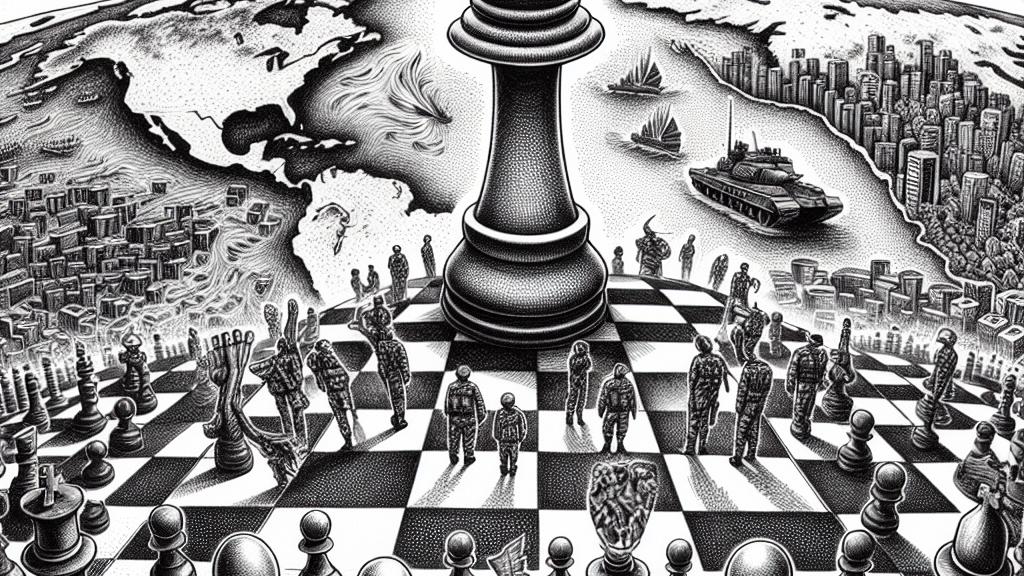Caught in the Crosshairs: Taiwan, China, and the Global Chessboard
Overview
- China's mounting military threats towards Taiwan pose a significant challenge to regional stability.
- Growing international alliances are forming to counter China's aggressive actions.
- Reassessing U.S. policy towards Taiwan is crucial for maintaining peace in East Asia.

Escalation of Military Threats Against Taiwan
The situation surrounding Taiwan has seen a dramatic escalation of military threats, particularly from China, which considers the island a renegade province. The recent statements by Raymond Greene, the de facto U.S. envoy to Taiwan, reveal that China’s intimidation campaign extends beyond Taiwan, affecting numerous countries in the region. Reports of increased Chinese military drills in the Taiwan Strait, including the frequent incursion of military aircraft into Taiwan’s air defense identification zone, have raised alarm among international observers. Evidence of ongoing military mobilizations and exercises in the nearby Fujian province indicates that Taiwan remains on heightened alert. Taiwan's government is responding by enhancing its defense capabilities, notably through increased arms purchases from the United States, ensuring that it remains prepared to defend itself against potential threats while upholding its sovereignty and independence.
Strengthening International Alliances and Cooperation
As China continues to assert its claims aggressively, a significant shift is occurring in international relations, with countries uniting to counterbalance this growing threat. Greene's comments highlight a concerted effort among nations to band together with the United States to maintain a rules-based international order. For example, Japan has stepped up its defense measures in the wake of increasing incursions by Chinese aircraft, forming new agreements with the U.S. to bolster its military readiness. This newfound solidarity is not just limited to military cooperation; it reflects broader efforts to promote regional stability through economic and diplomatic ties. The collective stance taken by these nations underscores a shared commitment to democratic principles in the face of authoritarian pressures, marking a pivotal moment in global relations where mutual defense takes precedence over isolationist policies.
Reevaluating U.S. Policy Towards Taiwan
The critical role of the United States in the Taiwan Strait has prompted discussions about the need to reassess its long-standing 'strategic ambiguity' policy. This policy, which has historically aimed to deter both Taiwanese moves toward independence and Chinese military aggression, is being questioned by experts who suggest that a clearer commitment to defending Taiwan may be necessary to prevent miscalculations by China. Recent calls for potentially enhancing arms cooperation or joint military exercises with Taiwan indicate a shift towards greater transparency in U.S. intentions. As tensions mount, U.S. policymakers face the challenge of balancing support for Taiwan with the need to avoid escalating conflicts with China. The complexity of these relationships necessitates a thoughtful approach to diplomacy and defense, ensuring that actions taken reaffirm U.S. commitment to its allies while managing the fragile peace in East Asia.

Loading...